-
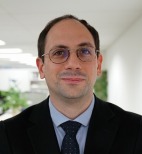
- Matthew David Wittenstein
Chief of Section, Energy Connectivity, UN Economic and Social Commission for Asia and the Pacific (UNESCAP) - Matthew Wittenstein is Chief of Section for Energy Connectivity at the UN Economic and Social Commission for Asia and the Pacific (UNESCAP). In his role, Matthew supports to improve the sustainability and security of their energy systems through increased cross-border power system integration. Recent work includes capacity building for energy regulators in ASEAN, an assessment of the potential to develop a “green power corridor” in North-East Asia and supporting increased cooperation on sustainable energy among the countries of the Pacific.
Prior to joining the UN, Matthew was a Senior Electricity Analyst at the International Energy Agency (IEA), where he focused on the economics of generation, the challenges of encouraging investment in clean energy technologies, and electricity market design. From 2011 to 2014, he was a Fellow at the US Department of Energy. Matthew holds a Master of International Affairs from Columbia University, with a concentration in international economic policy.
- Matthew David Wittenstein
-
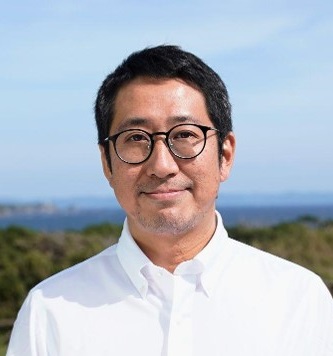
- Ryo Ogawa
COO, Shizen International Inc. - Ryo Ogawa is the COO of Shizen International and also the Department Head of the International Business Department of Shizen Energy.
Ryo joined Shizen Energy in August 2021 and has been working on the development of international renewable energy projects. He also serves as Shizen Energy’s Indonesia-Vietnam Country Manager.
Prior to joining Shizen, Ryo worked at Japan International Cooperation Agency (JICA) and Japan Bank for International Cooperation (JBIC), where he gained extensive experience in financing infrastructure projects, including energy, transportation and sanitation sectors, particularly in ASEAN countries.
He holds a Bachelor of Law from the University of Tokyo and a Master of Law (L.LM) from Fordham University, School of Law. Attorney at law in New York State, U.S.A.
- Ryo Ogawa
-
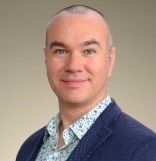
- Ken Haig
Head, Energy and Environmental Policy, Asia-Pacific & Japan, Amazon Web Services (AWS) - Ken Haig (Ph.D.) is Head of Energy and Environmental Policy for Amazon Web Services (AWS) across the Asia-Pacific (APAC) region. Before joining AWS, Ken helped launch the APAC business for Opower, a startup that pioneered the blending of behavioral science and data science to promote large-scale energy management programs (acquired by Oracle in 2016), and prior to this was a U.S.-based academic teaching/researching comparative politics and public policy at U.C. Berkeley, Harvard University, and Bard College. Ken holds a B.A. from Harvard University, and a Masters and Ph.D. in Political Science from the University of California, Berkeley.
- Ken Haig
-
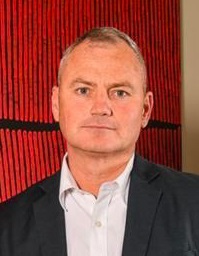
- Simon Holmes à Court
Director, Smart Energy Council - Simon Holmes à Court is founder of Climate 200, a crowdfunding initiative supporting community candidates committed to climate, integrity and gender equity. At Australia’s 2022 Federal election, Climate 200’s 11,200 donors leveled the playing field, helping to elect seven new independents to the Australian Parliament.
Simon began his career as a software engineer in Silicon Valley during the first dotcom wave, then spent more than a decade in precision farm water management. Simon was a driving force behind the Australia’s first community-owned wind farm, Hepburn Wind, winner of the 2012 World Wind Energy Award. Simon was appointed as the founding chair of the Melbourne Energy Institute’s Advisory Board.
He is an energy analyst, cleantech investor, climate philanthropist, director of the Smart Energy Council, The Superpower Institute and the Australian Environmental Grantmakers Network. He writes regularly about the transformation of Australia’s energy sector.
- Simon Holmes à Court
-
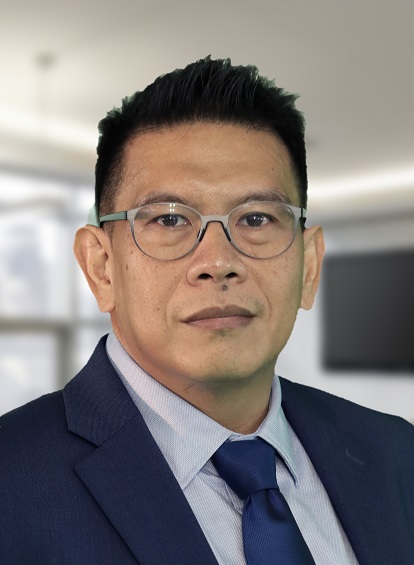
- Fabby Tumiwa
Executive Director, Institute for Essential Services Reform (IESR) - Fabby Tumiwa is an energy transition strategist and the Executive Director of Institute for Essential Services Reform (IESR). IESR is an Indonesia think tank in energy policy and environment that advocates for the low carbon energy transition in Indonesia. Fabby studied electrical engineering at Satya Wacana Christian University.
Fabby has experienced more than 20 years in energy policy and regulation and is a renewable energy practitioner. He advises Indonesian government agencies, businesses, and NGOs, multilateral development organizations on electricity, renewable energy and energy efficiency, energy finance, and climate change policies. From 2006 to 2018, he was a member of the international climate change negotiation team of Indonesia, and the board member of Extractive Industries Transparency Initiative (EITI) from 2011 to 2015.
Fabby Tumiwa is chairman of the Indonesia Solar Energy Association since 2021. He is a solar developer, a member of the Technical Advisory Group (TAG) of Energy Sector Management Assistance Program (ESMAP) of World Bank and a member of Energy Transition Accelerator High – Level Consultative Group, an initiative by US State Department, The Rockefeller Foundation, and Bezos Foundation.
Fabby is a 2007 LEAD Fellow and 2009 Eisenhower Fellow.
- Fabby Tumiwa
-
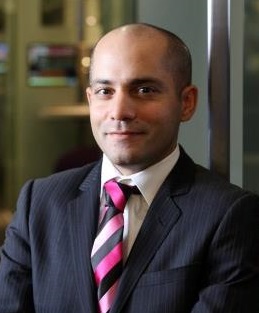
- Ali Izadi Najafabadi
Head of Asia Pacific, BloombergNEF - Based in Seoul, Ali Izadi manages BloombergNEF's activities across Asia Pacific, focusing on the transition of the region's economies to a cleaner more competitive future. Prior to his current role, Ali managed BloombergNEF’s Intelligent Mobility team as well as Japan and Korea Research team. Prior to joining BloombergNEF in 2010, Ali had worked at Japan’s National Institute of Advanced Industrial Science and Technology, as well as fuel cell manufacturer, Ballard Power Systems.
Ali has an undergraduate degree in Engineering Physics and a Masters in Electrical Engineering from the University of British Columbia, and a Doctorate in Materials Science from Meijo University.
- Ali Izadi Najafabadi
-
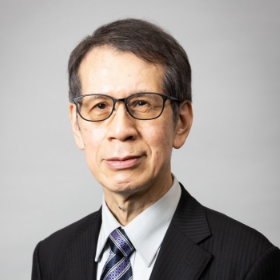
- Teruyuki Ohno
Executive Director, Renewable Energy Institute - Teruyuki Ohno joined Renewable Energy Institute in 2013. He has actively participated in the policy formation of Japan’s climate change measures as a member of national and local governments' committees. Before joining the Institute, he was Director General of the Bureau of Environment, Tokyo Metropolitan Government for three years, covering a broad range of environmental issues including energy, climate change, waste management, pollution control, natural environment, and sustainable development. His notable achievements include the “No Dirty Diesel Vehicle Strategy in Tokyo” which reduced the air pollution and PM emissions, and implementation of Japan’s first Cap-and-Trade Program in Tokyo in 2008, involving the industries and successfully building a grand consensus. His active leadership in promoting renewable energy and energy efficiency led to the formation of the foundation of Tokyo’s energy policy. He also serves as part-time lecturer at the University of Tokyo, Board Member of WWF Japan, and Counselor to the Governor on Zero Emission Tokyo and Environmental Policy. He received the Haagen-Smit Clean Air Award from the California Air Resources Board in 2014. His publications include "Energy Strategies of Municipality Governments" (Iwanami, 2013, Japanese) among others.
- Teruyuki Ohno
-

- Romain Zissler
Senior Researcher, Renewable Energy Institute - Romain Zissler joined Renewable Energy Institute in 2014. He specializes in studies on the progresses of renewable energy deployment around the world. He is also the lead country contributor for France in the Renewables Global Status Report, a flagship publication of the Renewable Energy Policy Network for the 21st Century (REN21). He obtained a doctoral degree in energy science and engineering at Tokyo Institute of Technology in 2021, and a master degree in energy finance at Paris-Dauphine University in 2012.
At Renewable Energy Institute, his research focuses on studies on the current global efforts towards carbon neutrality. He is also responsible for compiling international energy statistics on the Institute’s website.
- Romain Zissler
-
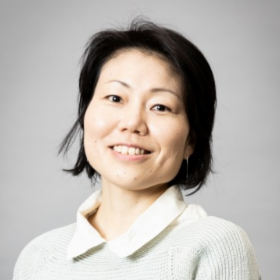
- Yuri Okubo
Senior Climate Engagement Strategist, Renewable Energy Institute - Yuri Okubo joined Renewable Energy Institute in 2015 and specializes in developing stakeholder engagement and communication strategies, especially in the areas of coal and steel industry.
She started her career working for a local NGO in Japan and became an assistant researcher at the Department of Political Science of the University of Zurich, where she was engaged in projects on climate finance and sustainable development in developing countries, which were funded by the European Parliament, the German Federal Environment Agency and UK-based organizations. She joined the myclimate foundation in Switzerland to set up its Japanese affiliation and support the development of a global network.
She follows domestic coal-fired power policies and related global trends and has analyzed and authored reports including the business risk of new coal-fired power in Japan and coal phase-out in line with the Paris Agreement. Alongside working closely with international partners, she supports Japan Climate Initiative (JCI) to coordinate climate action messaging and events with non-state actors.
She obtained a master’s degree in International Relations at Kobe City University of Foreign Studies.
- Yuri Okubo
Speakers Profile Energy Transition in APAC and Japan's Role
15 March 2024






